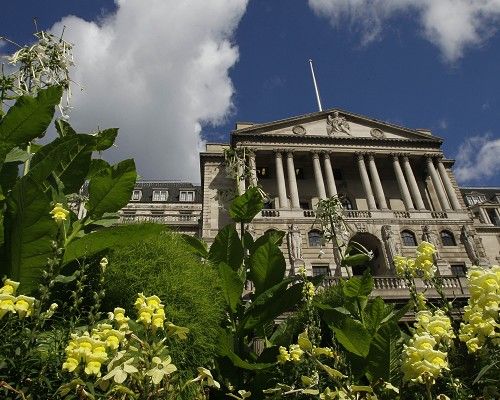

Eight lenders will learn today whether they have passed Bank of England tests showing how they would cope with severe economic stress.
The scenario will examine how banks and building societies would fare if the UK undergoes a crisis wiping 35% off house prices and sharply shrinking the economy. It comes after a similar European stress test in October was passed by state-backed Royal Bank of Scotland (RBS) and Lloyds, plus Barclays and HSBC.
There was embarrassment for RBS after it admitted later that it got its sums wrong, meaning it only scraped through, rather than passing easily. The tests examine how lenders' balance sheets stand up to a simulated Doomsday scenario of economic crisis by calculating whether enough capital would be left on their balance sheets.
The Bank of England exercise is seen as tougher but also more flexible than the European framework. It will cover the Co-operative Bank, Santander UK, Nationwide and Standard Chartered as well as those tested in the European process.
Co-op Bank boss Niall Booker has admitted it will be "no surprise" if it fails to pass - with the lender still undergoing a rebuilding process agreed with Bank of England regulators after its near-collapse last year. It has already had to raise £1.9 billion in capital since its crisis and seen overall control slip out of the grasp of the wider Co-operative Group, which now owns just a fifth of the lender with the majority passed into the hands of investors including US hedge funds.
Among other banks, RBS - 80%-owned by the taxpayer - will want to avoid another embarrassing slip-up.
Lloyds, 25%-controlled by the Treasury, is seen as being exposed because of its leading position in the UK mortgage market. Its performance in the test will be key to deciding whether it can resume dividend payments in the new year.
The likes of HSBC and Standard Chartered, are regarded as less exposed to the Bank of England's UK stress test scenario, with much of their business focused on Asia.
Lenders taking part in the exercise will want to avoid a failure which might see them have to turn to shareholders to raise cash, or sell off assets.In the scenario, interest rates would also rise to 4.2% from their current historic low of 0.5%, putting pressure on the property market and Britain's heavily-indebted households and businesses.
Parts of the banking sector are still recovering after being brought to their knees by the financial crisis, and the scenario will try to gauge how they would cope with a further three-year period of turmoil from the start of this year to the end of 2016.
They will simulate a scenario in which gross domestic product (GDP) falls by as much as 3.5%, adding to the damage caused by the real financial crisis to result in a "cumulative contraction'' that has only been seen once in 150 years, after the First World War.
It would also see a 30% fall in the pound, inflation reaching more than 6.5%, unemployment soaring to 12% and house prices falling by 35%, while shares would plunge in value by 30%.
Setting out the criteria for the test earlier this year, the Bank stressed that the scenario was not a forecast of economic conditions in the UK and that the path envisaged by it was well outside its main projections.
The house price fall being imagined has never been seen in the UK since records began in the 1950s. It would take prices to levels last seen in 2002. During the recent financial crisis they dropped by around 20%. But unemployment under the scenario would be similar to levels seen in the 1980s and early 1990s. Meanwhile, inflation has been at levels greater than those reached under the simulation 28 times over the past 150 years.
Banks and building societies will be assessed on whether the capital level on their balance sheet is projected to fall below 4.5% under the scenario.
If a lender does go below the level, it is likely to be ordered to strengthen its capital position by the Bank's Prudential Regulation Authority (PRA). But the regulator's assessment of the exercise may mean that a bank still has to take action even if it does meet the threshold, if the PRA sees fit.
Comments
Comments on this story express the views of the commentator only, not Bailiwick Publishing. We are unable to guarantee the accuracy of any of those comments.